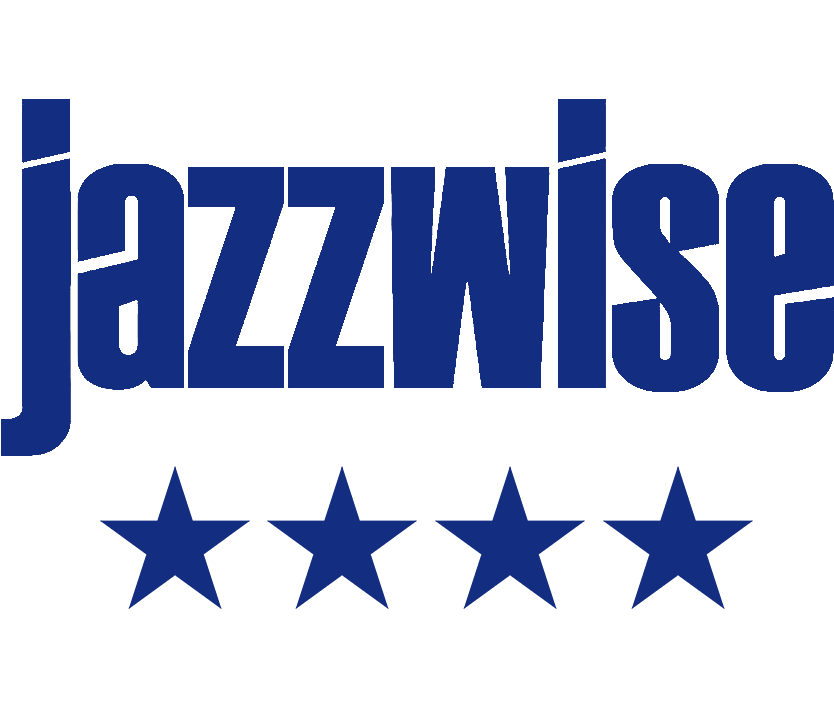Mihály Dresch Quartet Egyenes zene - Straight music
“Gramofon – Hungarian jazz album of the year, 2004” by the Hungarian magazine Gramofon
I realised that music requires the whole person, including who they are and where they are from – that’s what sounds through the instrument. I realised I would never be able to make music from the same impulse as Coltrane, Griffin, and the other masters. That’s how I came to need to play out my own experience. When I was practising, I noticed that while my first small pieces were taking shape, I was thinking of my grandparents. Ever since, this has been important: my loved ones should be present in my spirit.
Mihály Dresch Dudás
Artists
Mihály Dresch - tenor and soprano, saxophones, traditional recorder
Ferenc Kovács - violin
Mátyás Szandai - double bass
István Baló - drums
Kálmán Balogh - cimbalom (4, 5)
Mátyás Bólya - koboz (Hungarian lute) (6)
Anna Dresch - vocal (7)
About the album
All compositions by Mihály Dresch except track 4: composed by Mihály Dresch, Ferenc Kovács, Mátyás Szandai, István Baló, Kálmán Balogh; track 5: arranged by Mihály Dresch; track 7: traditional folk song
Recorded at Arion Studio, Budapest in October/November 2003
Recorded and mixed by János Horváth
Cover art by Meral Yasar based on photos by Lenke Szilágyi
Portrait photo: István Huszti
Art-Smart by Meral Yasar
Produced by László Gőz
Executive producer: Tamás Bognár
The recording was sponsored by the Ministry of Cultural Heritage, the National Cultural Fund of Hungary and the Artisjus Music Foundation
Reviews
Szabó Károly - Hangzásvilág.hu
Scott Yanow - allMusic **** (en)
Duncan Heining - Jazzwise **** (en)
Michael Stone - RootsWorld (en)
Anne Ramade - Jazzman ** (fr)
wqw - Indiepoprock.net (fr)
Juan Carlos Abelenda - Tomajazz.com (es)
Krzysztof Forszpaniak - Diapazon (pl)
Martin Ellenbruch - My Way (de)
Kiss Eszter Veronika - Magyar Nemzet (hu)
Szigeti Péter - Gramofon ***** (hu)
H. Magyar Kornél - Fidelio (hu)
Flór Gábor - Café Momus (hu)
Olasz Sándor - Rockinform (hu)
Kovácsy Tibor - Magyar Narancs (hu)
Zombori Tamás - Világgazdaság (hu)
Retkes Attila - Medical Tribune (hu)
VH - Vasárnapi Hírek (hu)
Komlós József JR - Alföldi Régió Magazin (hu)
Dresch Quartet: Egyenes zene - Straight music
The album is available in digital form at our retail partners
Straight music
Straight music. I dedicate this composition to Nelly, the mother of my daughter, in my difficult period.
Thanks to Jesus for being there, and for helping me through this difficult time. Blessing.
Trio. Music based on folk melodies that have survived to the present day, thanks to the old Hungarians and to the young people who still preserve them. Traditionally dance house, just like Transylvanian Romanian music, the process of which is for me life energy.
Dawn. Simultaneously, the promise of all new pleasure and grief. A wonder, like a new life. Annuska... I love you. Bud of the dog rose. Dad.
Mihály Dresch Dudás
The different and the same
(Straight music)
Mihály Dresch’s oeuvre is rich and consistent enough for his admirers to start repeating themselves. But there is no avoiding it: over and again, the Dresch albums are considered to be the cornerstones of ‘Hungarian jazz’, in which the dialects of Hungarian folk music sound crystal clear through the universal language of jazz.
In the village in the plain where he grew up as a lad, with his grandparents, name days were celebrated by hiring musicians, and this was Mihály Dresch’s first taste of folk music. His engineering studies, however, took him to Budapest, where he met another influence on hearing Johnny Griffin’s saxophone, and was completely overawed. But after a while he had to concede that it was not worth imitating the great black jazz musicians: “I realised that music requires the whole person, including who they are and where they are from – that’s what sounds through the instrument. I realised I would never be able to make music from the same impulse as Coltrane, Griffin, and the other masters. That’s how I came to need to play out my own experience. When I was practising, I noticed that while my first small pieces were taking shape, I was thinking of my grandparents. Ever since, this has been important: my loved ones should be present in my spirit.”
So much for his past, from an earlier interview, as a kind of repeat, if you will.
For this past is present on the album Straight music too. More removed in the Moldavian and Gyimes melodies of the Trio, and closer in the Transylvanian Romanian music, closely linked with the music of the dance houses. Actually, I know no other Hungarian jazz musician who places as much emphasis on his link with the dance house movement as Mihály Dresch Dudás: “For a person to be able to absorb melodies and feelings, these had to be preserved by the old Hungarians, but I am just as grateful to the young people too, like Sebő and Halmos, who introduced us to these values,” he added to his (above) notes.
At the same time, beyond the obvious self-identity of Dresch’s works, and in view of it, the things that distinguish Straight music for me are precisely those steps which show a more conspicuous intimacy or sensitivity than before. These steps not only make his pieces more dramatic, but it is as if they suggested that from now on we are dealing with something qualitatively different. This is a quality in which folk music and jazz merge not because Dresch managed to keep control of the forms and proportions, but because they have ‘no other option’. Just as Dresch can do nothing else. His sound can no longer be unravelled from the sound of ‘Hungarian jazz’. They belong together – in their gut feeling, their blood, their fate and their mother tongue. Whether we speak of folk music arrangements or original compositions inspired by folk music is, in essence, neither here nor there. The sound is one and the same, and that is the truth.
In spite of this one cannot ignore the fact that behind this moving recording there lies a fairly recent personal shock. That ‘difficult period’ that Dresch referred to (above) in relation to the title piece: the separation from his daughter’s mother. “This experience was harrowing physically and emotionally, but at least I have become more understanding with others. It showed me that a person is as fragile as a reed. Until then, I had felt secure, and suddenly it dawned on me how fragile this security was. At the time, it looked like I would lose my daughter too, and for me this was one of those crises, or moments of surrender, when you just give up. Not in the sense that you want to die, but that you realise that of your own merit, you know nothing. I felt I had to ask Jesus of Nazareth for help so life could continue, this was my last chance. So I sought him.”
There it is.
What can one add to these words, or to these pieces?
So much for the turns of expression and sublimity of Blessing and Dawn, and about the state of grace which later manifested itself in the Bud of the dog rose, created jointly with his daughter...
And what does ‘Straight music’ mean?
With a straight back, and straight talk, straight to our hearts. What else could it mean?
Mihály Dresch Dudás’ pose is Straight music.
László Marton Távolodó
translated by Richard Robinson
Mihály Dresch Quartet
Mihály Dresch Dudás (1955, Budapest) was an engineering student of seventeen when he turned to jazz under the influence of Johnny Griffin. After completing studies in jazz at the conservatory (1979) he linked up with the vanguard of Hungarian mainstream jazz, and although since then he has created an independent world he has not completely broken away from ‘traditional’ jazz. To this day, his albums feature the odd evergreen piece – this is his way of paying homage to the masters.
Mihály Dresch Dudás first founded his own band in 1984. By the middle of the nineties its line-up had changed several times: on the albums Sorrow and Thoughts about the ancients we can hear István Grencsó (wind instruments), Róbert Benkő (bass) and István Baló (drums), and on The sounds of soul Tamás Geröly was on drums and Félix Lajkó on violin. Lajkó was later replaced by Ferenc Kovács (violin, trumpet), and with this line-up were made Winding, Over the water and Ferryman, my ferryman...
Then in spring 1998 the band was re-formed and since then has played with the same musicians: István Baló came back to the drums, Ferenc Kovács held out at his post, while the bass came into the hands of the then still young Mátyás Szandai. The first album of the re-formed quartet (Riding the wind) was released in the UK, but Hungarian bebop had a more conspicuous international acclaim, since they managed to get a genuine legend, Archie Shepp to take part in the recording.
In addition to Archie Shepp, the members of Dresch Quartet have worked with outstanding artists such as John Tchicai, Roscoe Mitchell, Chico Freeman, David Murray and Dewey Redman; and the band has been the guest of festivals and clubs as high-ranking as the Jazz & Wine Festival (Italy), the Festival Jazzčbre (France), the London Jazz Festival (UK), JazzFest Wien (Austria), the Kalisz Festival (Poland), the New Morning (France) and the Jazz Brugge (Belgium).

